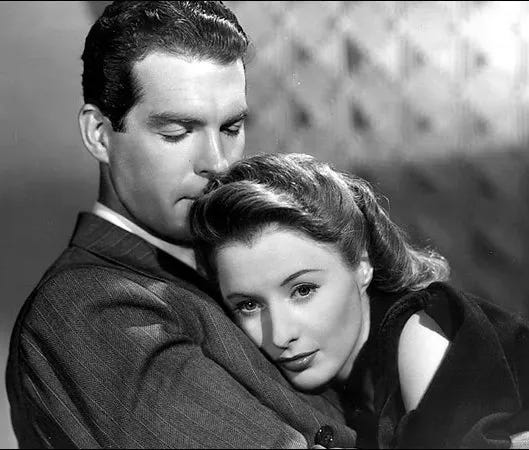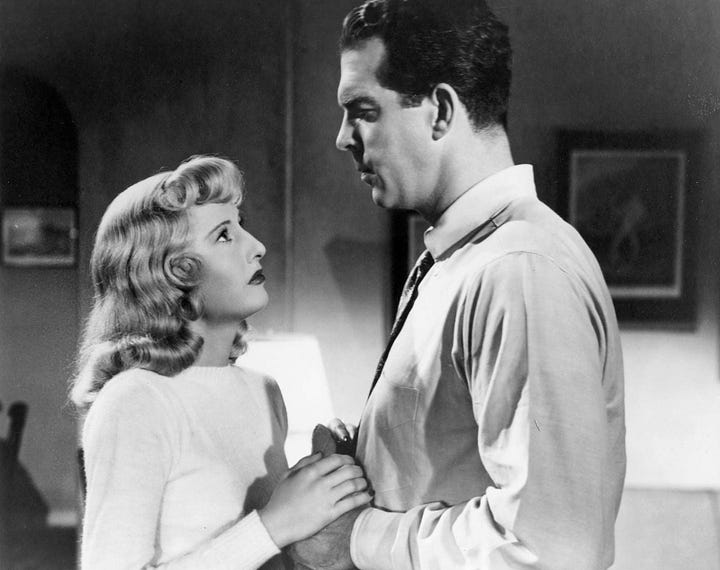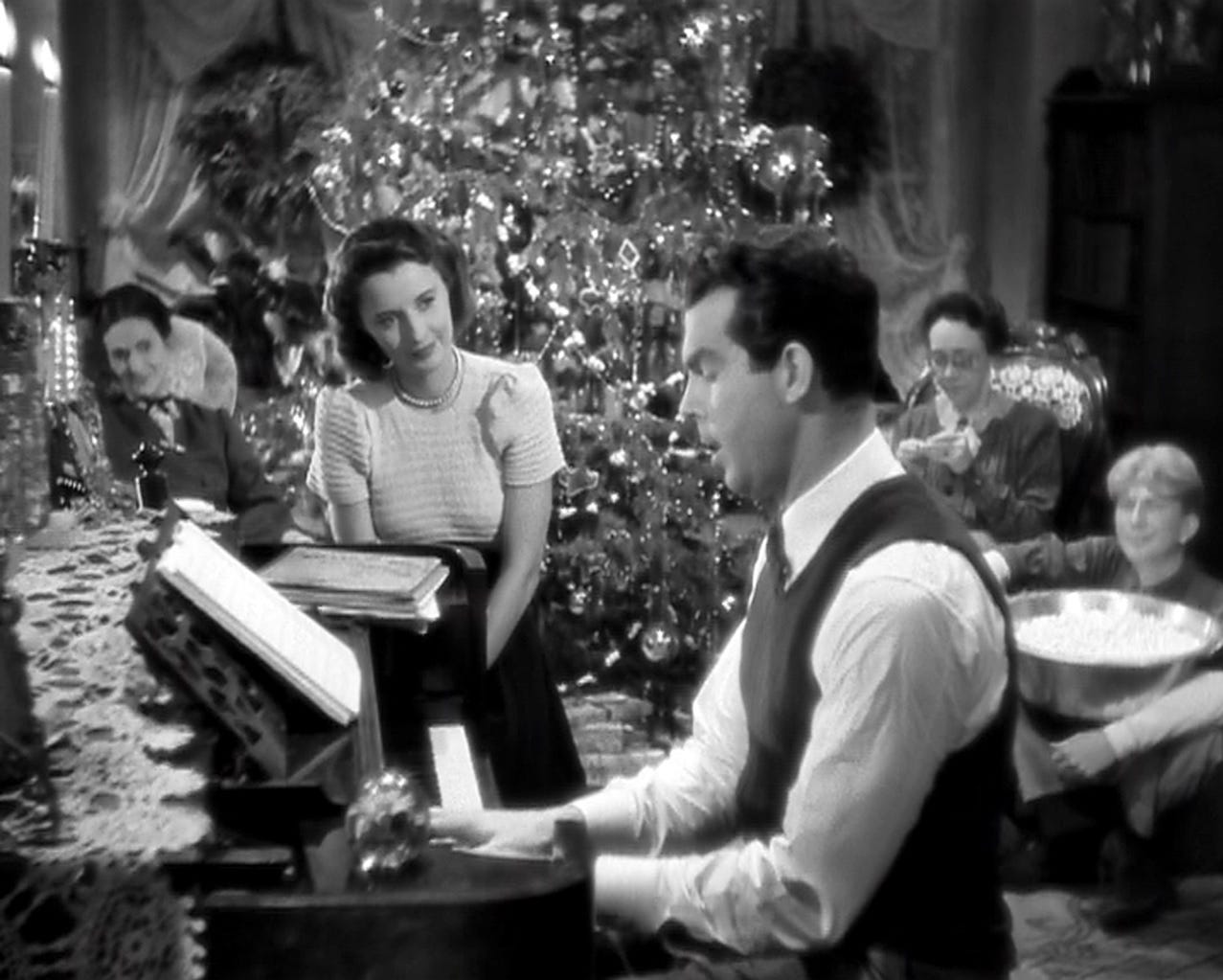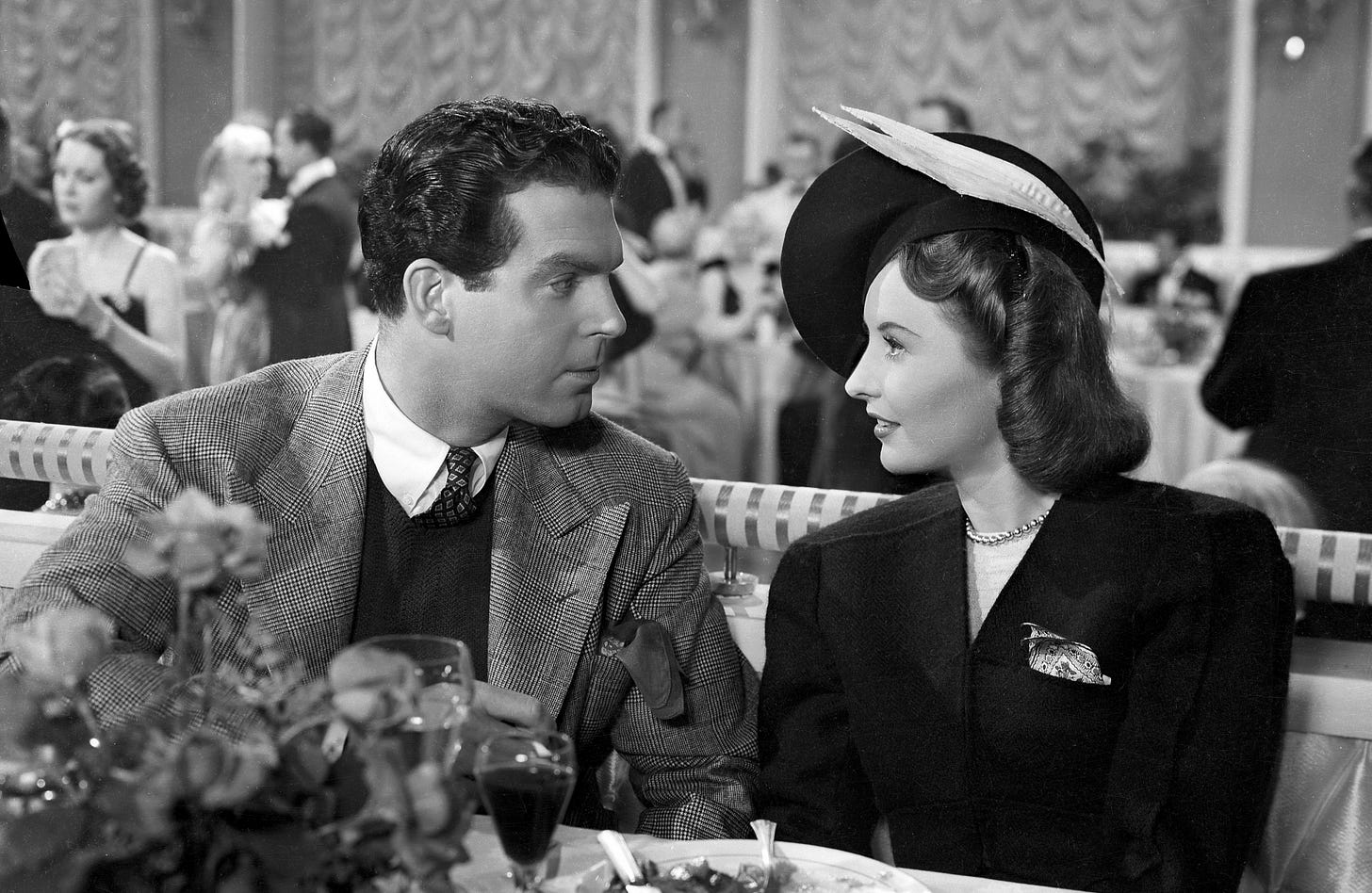"How long since you've been home?"
Noir and romcoms aren’t so far apart.
Plenty of noir involves romance and hilarity; sometimes a bleak ending the only thing firmly grounding any given film as the ‘darker’ genre.
Few romcoms are as consistently delightful, unabashedly sexy, and outright hilarious as quintessential noir The Thin Man.
One of the wittiest romcoms of all time is His Girl Friday, with its twist on a femme fatale (hint, it’s not Rosalind Russell!), and a plot centring the death penalty which features The Establishment pushing a woman towards suicide.
It’s a Wonderful Life is both romcom and a noir — and its Christmas setting makes it one of the closest comps to Remember the Night, which came out six years prior, in 1940.
Remember the Night doesn’t much more than feint towards noir, almost stubbornly (studio-required-ly?) returning to moral messaging as the central couple romance each other with more slapstick than malfeasance. But noir seeps through nonetheless.
Maybe my lenses are smoke-coloured from seeing Double Indemnity many times before Remember the Night, but Stanwyck and MacMurray’s chemistry carries a more sensual* undercurrent than most romcoms, foreshadowing their immortal darkest-noir turn four years later.
*All romcom characters worth their salt need or have had each other sexually, but this is sensual; don’t ask me to parse the difference, you have to feel it.
Other than her hair colour (which blonde for Double Indemnity Wilder said was a mistake), either of these stills could work for both films.


Their sensual undercurrent is subtext to the dangerous text of their ‘meet cute,’ when MacMurray’s lawyer Jack is roped into defending Stanwyck’s Lee on theft charges.
We never doubt Lee committed the theft — she’s belligerently defensive about it! She serves Jack a pro-theft, ‘poor people shouldn’t just be able to steal bread, but four-course meals’ diatribe which would probably have been censored out of even a noir premiering within the next a decade, as McCarthyism tightened the Hays Code’s looser strings.
Along with anti-fat-cat sentiment, writer Preston Sturges packed the script with drama, schmaltz, and as strong insinuations-of-sex as he could; for example a character makes a subtle dig at the size of Jack’s hands, immediately after which it’s made clear Lee doesn’t care about their span, only how he uses them.
Sturges said he wanted the film to have pain, grief, and moral ambiguity, the main concept being "Love reformed her and corrupted him." Those noir edges are some of my favourite bits — including Lee’s bitter mother refusing to change, Jack’s ethics bending then breaking, and the (somewhat, fight me!) equivocal ending.
Which leads us to the scene which gives this piece’s title: even amongst the melodramatic ‘lounge singer delivers on the nose song’ scene setting, this exchange has noir in spades.
The lines “How long since you've been home?" "Never." would be at home in any hardboiled film.
Part of Stanwyck’s magic saying it so offhandedly while imbuing it with a past full of pain. Watch how her left hand resist clenching Jack’s shoulder, then remains restless as she answers his follow-up question — a small tic revealing how hard Lee is working to keep a cool facade until she can escape to the table.
Jack follows her back to the table, and to his everlasting credit doesn’t force eye contact, doesn’t dig further into her psychic wound, but instead makes an offer, giving Lee an ‘out’ literally and metaphorically.
While Lee does happily use Jack’s softness to her own ends, including blatantly manipulating him into bailing her out (noir, I tell you!) crucially here she’s neither lying nor leveraging. Instead, she displays unexpected vulnerability he doesn’t take advantage of — lays bare the part of her actual self she usually hides beneath her just-as-actual causticness which inspires Jack’s genuine offer of a (literal) free ride. Jack’s offer also comes from a genuine place, usually veneered over by the ‘tough guy lawyer’ act he puts on in court, and act which falls away in Lee’s presence.
Lee’s genuine reveal followed by Jack refusing to poke harder into her ripped-open scar are two subtle nudges away from noir into romance, and the film embracing and rewarding the heartfelt from both of them cements its genres.
When writing and living, keep in mind the true message of Remember the Night; every romance (and most comedies) is better when it embraces the darkness along with the light.






